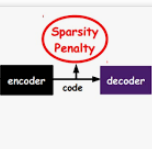We consider expected risk minimization problems when the range of the estimator is required to be nonnegative, motivated by the settings of maximum likelihood estimation (MLE) and trajectory optimization. To facilitate nonlinear interpolation, we hypothesize that the search space is a Reproducing Kernel Hilbert Space (RKHS). We develop first and second-order variants of stochastic mirror descent employing (i) \emph{pseudo-gradients} and (ii) complexity-reducing projections. Compressive projection in the first-order scheme is executed via kernel orthogonal matching pursuit (KOMP), which overcomes the fact that the vanilla RKHS parameterization grows unbounded with the iteration index in the stochastic setting. Moreover, pseudo-gradients are needed when gradient estimates for cost are only computable up to some numerical error, which arise in, e.g., integral approximations. Under constant step-size and compression budget, we establish tradeoffs between the radius of convergence of the expected sub-optimality and the projection budget parameter, as well as non-asymptotic bounds on the model complexity. To refine the solution's precision, we develop a second-order extension which employs recursively averaged pseudo-gradient outer-products to approximate the Hessian inverse, whose convergence in mean is established under an additional eigenvalue decay condition on the Hessian of the optimal RKHS element, which is unique to this work. Experiments demonstrate favorable performance on inhomogeneous Poisson Process intensity estimation in practice.
翻译:当估计值范围必须是非负值的时,我们考虑预期的风险最小化问题。在最大概率估计(MLE)和轨迹优化的设置驱动下,第一阶计划中的压缩预测是非负值的。为了便利非线性内插,我们假设搜索空间是复制的Kernel Hilbert空间(RKHS)。我们开发了使用(i)\ emph{psedo-gradients}和(ii) 降低复杂性预测的第一和第二阶梯镜下降的变体。第一阶梯的压缩预测是通过内核或高度比对的追求(KOMP)执行的,这克服了香草RKHS参数与透析设置的迭代指数脱钩。此外,当对成本的梯度估计仅可与某些数字错误相匹配时,我们需要进行假降解。根据不断的分级和压缩的预算,我们在预期的次偏差数值和预测的精度比值的精度比值匹配的半值的半值中,我们将精度调整预算的精度的精度的精度的精度的精度的精度推度的精细度演。




